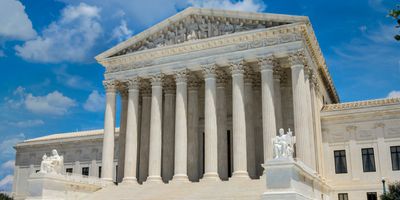The Supreme Court handed Donald Trump a big win on Monday. In a 6-3 decision along ideological lines, the conservative justices ruled that presidents have absolute immunity for actions related to their core responsibilities while in office. The decision will almost certainly delay the charges brought against the former president in Washington, DC, for allegedly plotting to overthrow the 2020 election.
Trump contends that he is entitled to absolute immunity from the three conspiracy charges and one count of obstructing an official proceeding brought by special counsel Jack Smith. Lower courts rejected the claim, but SCOTUS has ordered them to reassess whether Trump’s alleged action on Jan. 6 “qualifies as official or unofficial,” with the understanding that he would be immune from prosecution for official actions carried out as president.
The rationale: The court’s basic argument was that without these protections, a president would be unable to do his or her unique job independently and effectively, for fear of being prosecuted by political opponents or successors.
In dissent, Justice Sonia Sotomayor wrote that Monday's immunity decision, "effectively creates a law-free zone around the president, upsetting the status quo that has existed since the founding."
Joe Biden spoke out against the ruling on Monday night, echoing Sotomayor's sentiment that “there are no kings in America,” and said that the ruling means there are “virtually no limits” on presidential power. The president also said that voters deserved to have an answer through the courts before Election Day about what took place on Jan. 6. The court's ruling called for prosecutors to detail their evidence against Trump in front of a federal judge — and the public — at a fact-finding hearing, though it is unclear whether that will take place before Nov. 5.
Trump has prevailed in the court this session. Even before the rulings, the high court’s decision to take up the immunity case worked in Trump’s favor to delay his prosecution until after the November election.
The court also heard two other Trump-related cases this term concerning Jan. 6. The first, an attempt to bar Trump from the ballot in Colorado under Section 3 of the 14th Amendment, was unanimously rejected in March. The second ruling limited the use of a federal obstruction law to prosecute rioters who allegedly stormed the Capitol, and it will also affect Trump’s DC indictment because two of the four charges against him are based on that law.
Monday's immunity decision followed a wave of consequential rulings on Friday. Potentially the most impactful, but least flashy, was the Chevron decision, which limits the power of federal agencies and undermines the basis for upholding thousands of regulations by dozens of federal agencies.
In its final decision of the session, the court on Monday also ruled to keep in place a hold on any efforts by Texas and Florida state governments to limit how social media platforms regulate content, ordering the lower courts to review the case again. The court will reconvene in October.
